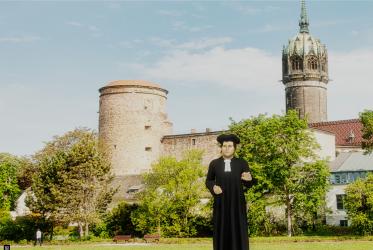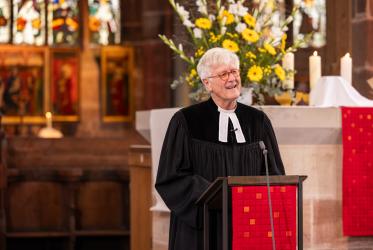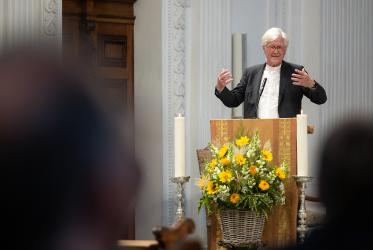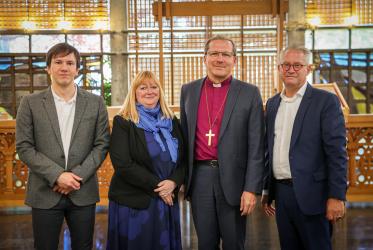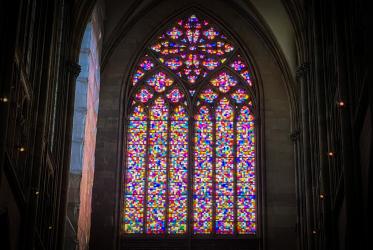Former German President Richard von Weizsäcker, died on 31 January. He was 94. “The World Council of Churches (WCC) remembers with deep gratitude Dr Richard von Weizsäcker for the gifts he brought to his church, the wider ecumenical movement and the world,” wrote the WCC general secretary Rev. Dr Olav Fykse Tveit, in a letter to von Weizsäcker’s wife Dr Marianne Baroness von Weizsäcker.
Richard von Weizsäcker was known worldwide as a former president of the Federal Republic of Germany. His speech in 1985 on the occasion of the 40th anniversary of the end of World War II was received with great respect and recognition. Here was a German who took responsibility for the past and stretched out his hands to work together with others for peace, justice and care for creation. It was during his tenure as federal president that the Berlin Wall fell in 1989 and Germany was reunited. He saw German reunification as an opportunity to meet the obligation to work for peace and common security for all countries of Europe.
Tveit, who studied in Germany during the presidency of von Weizsäcker, said, “He showed through his attitude of accountability for the past and mutual accountability for our common future how Christians can contribute to the political discourse and development of justice and peace between peoples and nations.”
Outside Germany, only a relatively few people know of his important and decades-long involvement in the Synod of the Evangelical Church of Germany, a WCC member church, and the presidium of the German Evangelical Kirchentag. The WCC general secretary stated: “Richard von Weizsäcker shaped German Protestantism with openness to the world and with great responsibility for freedom and justice. From 1968 to 1975, he was a member of the WCC Central Committee and enriched the debates with his outstanding political and human experience, his farsightedness and vision, and his diplomatic skills. He was one of those personalities who contributed decisively to a clearer social and political profile of the WCC so that the voice of the WCC was heard in contemporary conflicts and the United Nations.”
When in 1985 his brother Carl Friedrich von Weizsäcker called on the 21st German Kirchentag in Düsseldorf to establish a Christian peace council, giving strong support to the Conciliar Process of Justice, Peace, and Integrity of Creation of the WCC, Richard von Weizsäcker presented a thoughtful speech on “What it means to be German.” Referring to the 1983 WCC assembly in Vancouver, he said:
“The assembly of the WCC in Vancouver went on record saying that there could never be peace anywhere ‘unless and until there will be justice for all, everywhere.’ Bare, individual survival here in Central Europe is neither the sole nor the supreme good. We in Europe have to and desire to dedicate all our forces to the control and, above all, the reduction of armaments. But we should be very careful to avoid security policy becoming an obsession between East and West. We are not solely concerned with weapons and disarmament, but rather with peaceful relations and cooperation in all fields between East and West. Only when we help to alleviate poverty and hunger in the world, by ensuring justice everywhere, only then will we really help to pave the way to peace. What is needed is a peace that will do justice to all human beings.”
“Richard von Weizsäcker will be remembered for his voice of justice and peace.”
“We express our heartfelt condolences to his wife Marianne and the von Weizsäcker family. Our thoughts and prayers are especially with Rev. Dr Konrad Raiser, former WCC general secretary and his wife Elisabeth, niece of Richard von Weizsäcker,” said Tveit.
WCC general secretary’s letter on death of Richard von Weizsäcker (in German)


